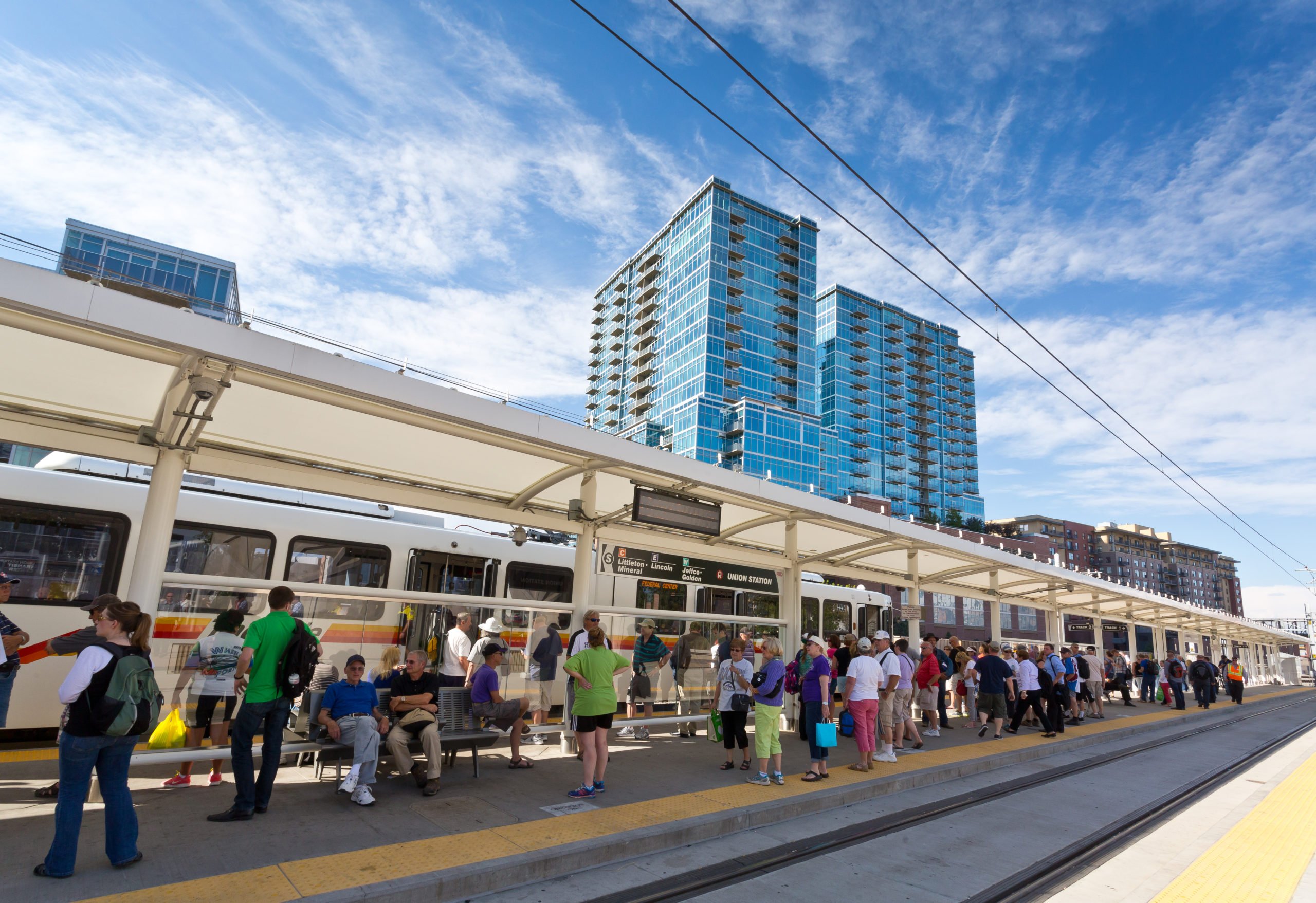RTD First-and-Last Mile Strategic Plan
Case Study
For Denver’s Regional Transportation District (RTD), building on a transit service that reaches more people effectively means facilitating efficient and safer connections from destination to destination. Covering more than 2,300+ miles and serving just over 3 million people, RTD sought a plan to guide future safety and access improvements to support first and last mile trips across 40 cities in and surrounding Denver, Colorado.
Leading a team of firms, UrbanTrans worked closely with RTD and the project planning advisory committee representing key stakeholders in the region to develop a comprehensive first and last mile strategy toolkit. The plan covers all modes of transportation, including improving access for transit, TNC pick-ups and drop-offs, pedestrians, bicyclists and micromobility users all while integrating TDM programs to complete the package of solutions.
Denver, Colorado
2018-2019
First and Last Mile
Planning
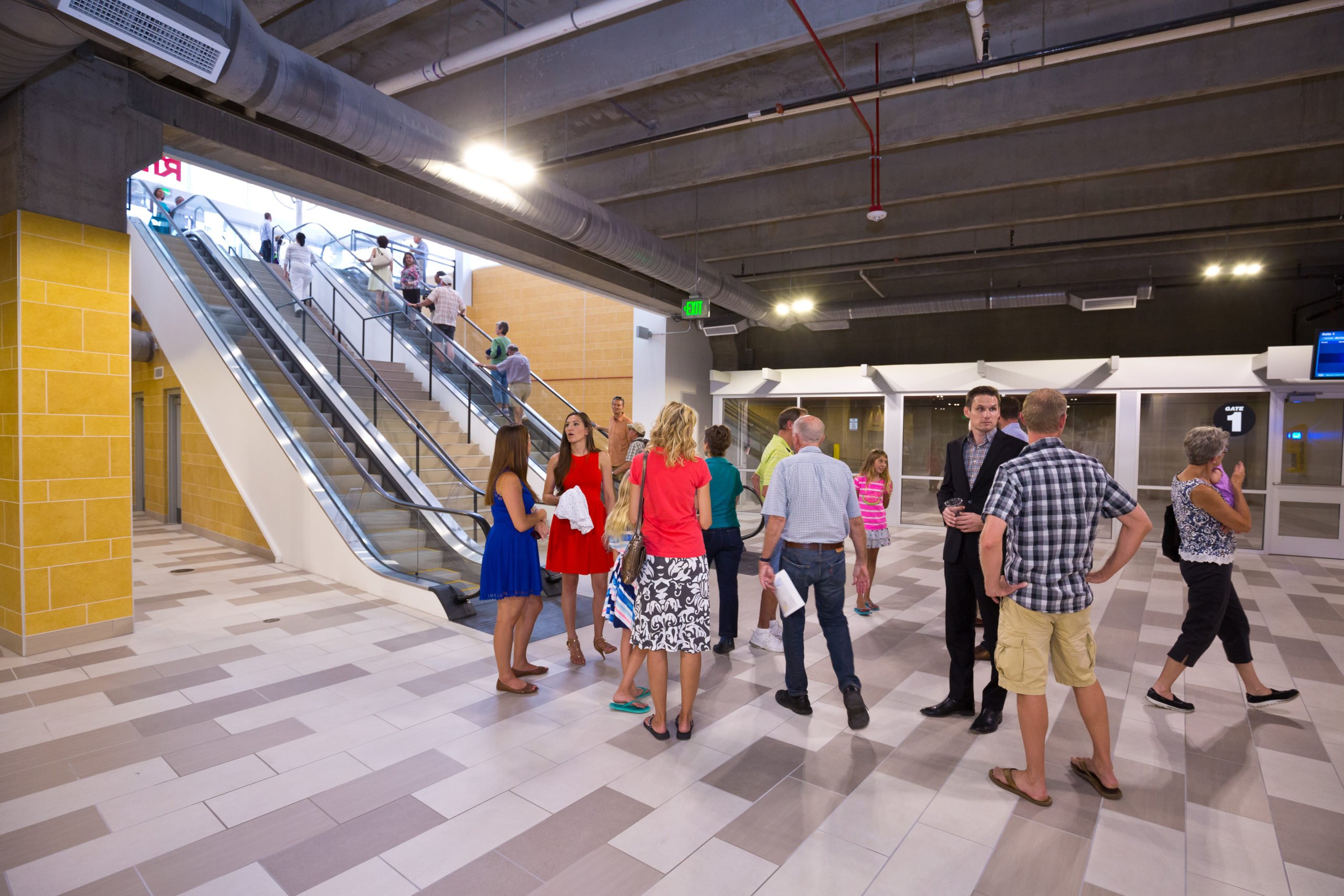

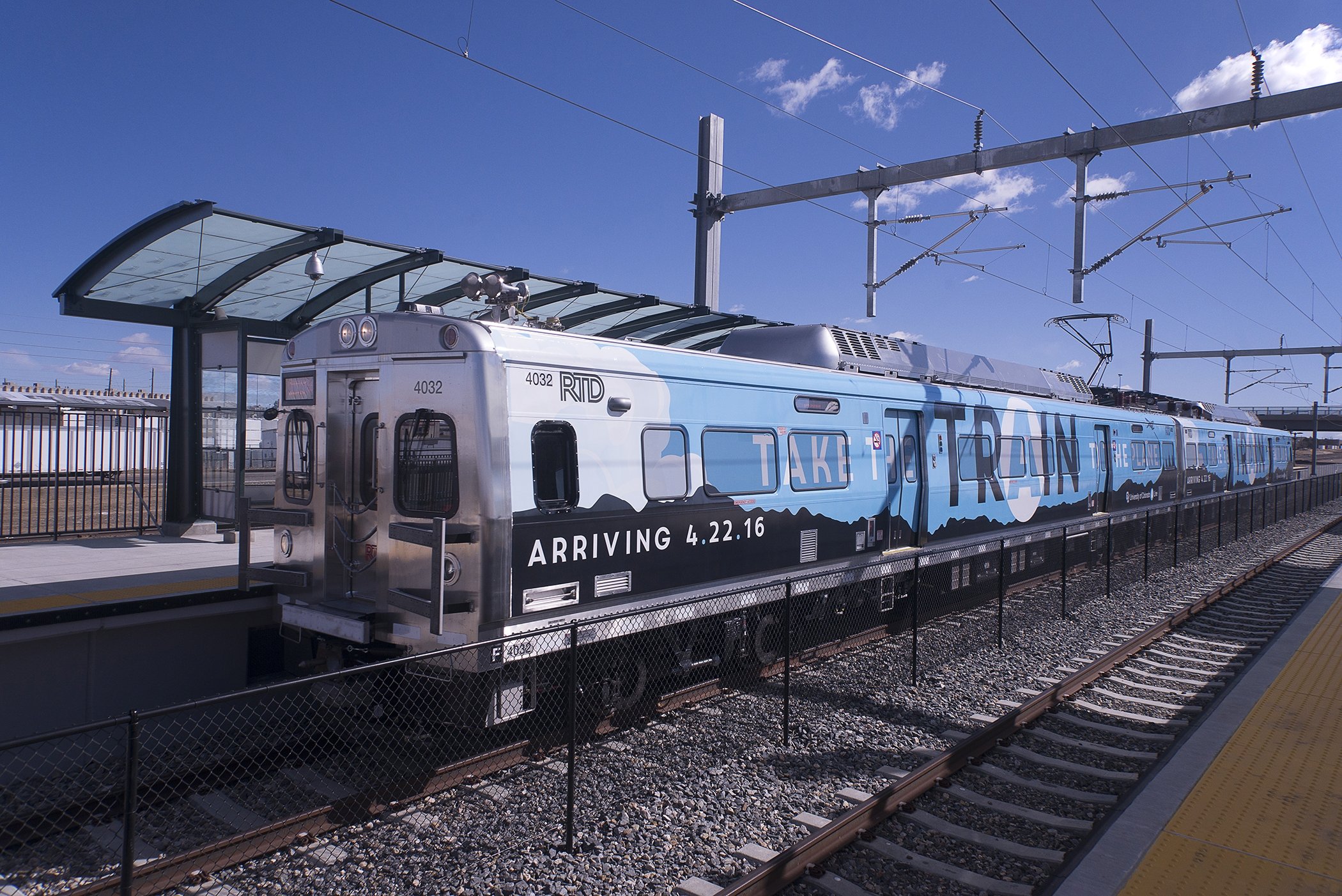
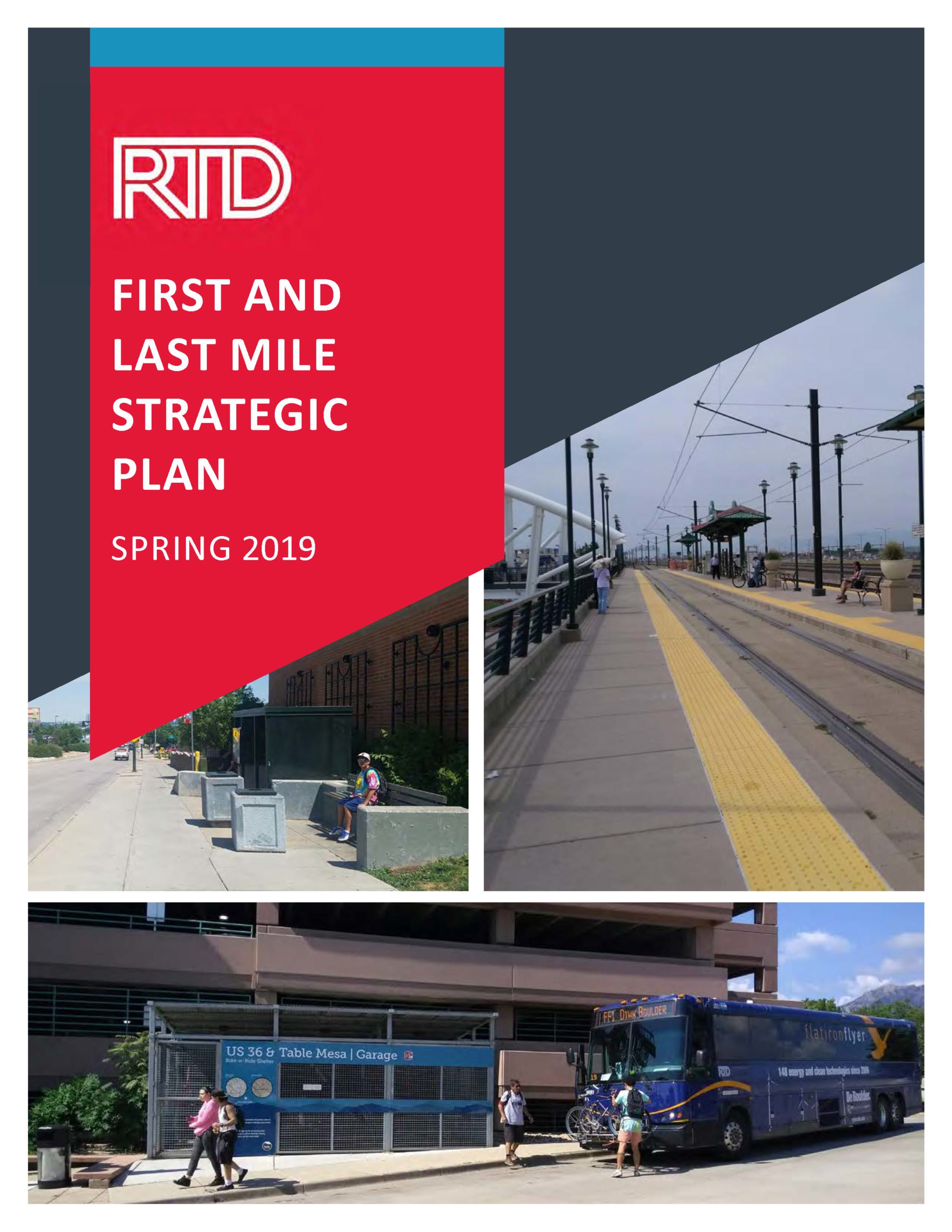
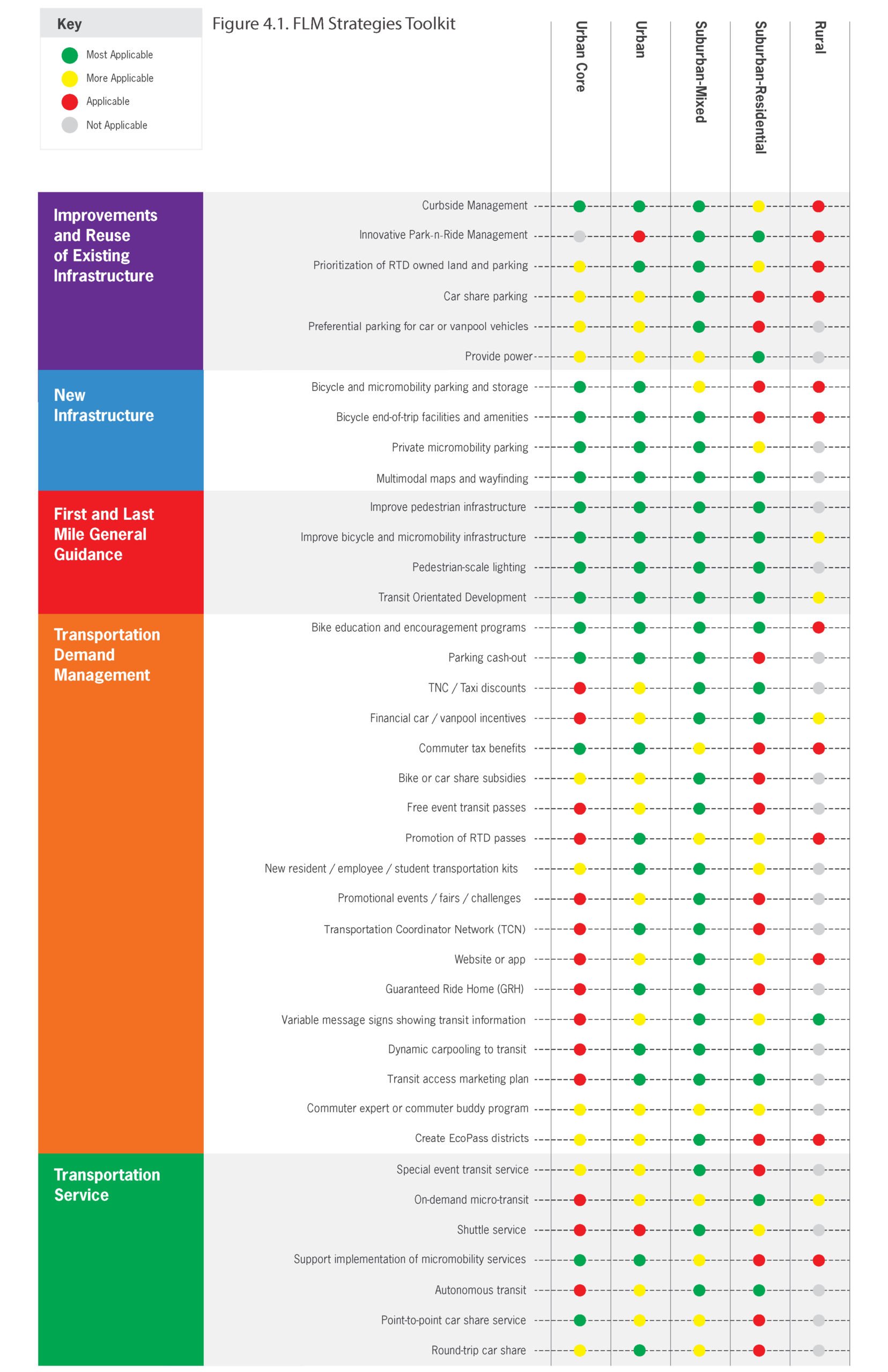
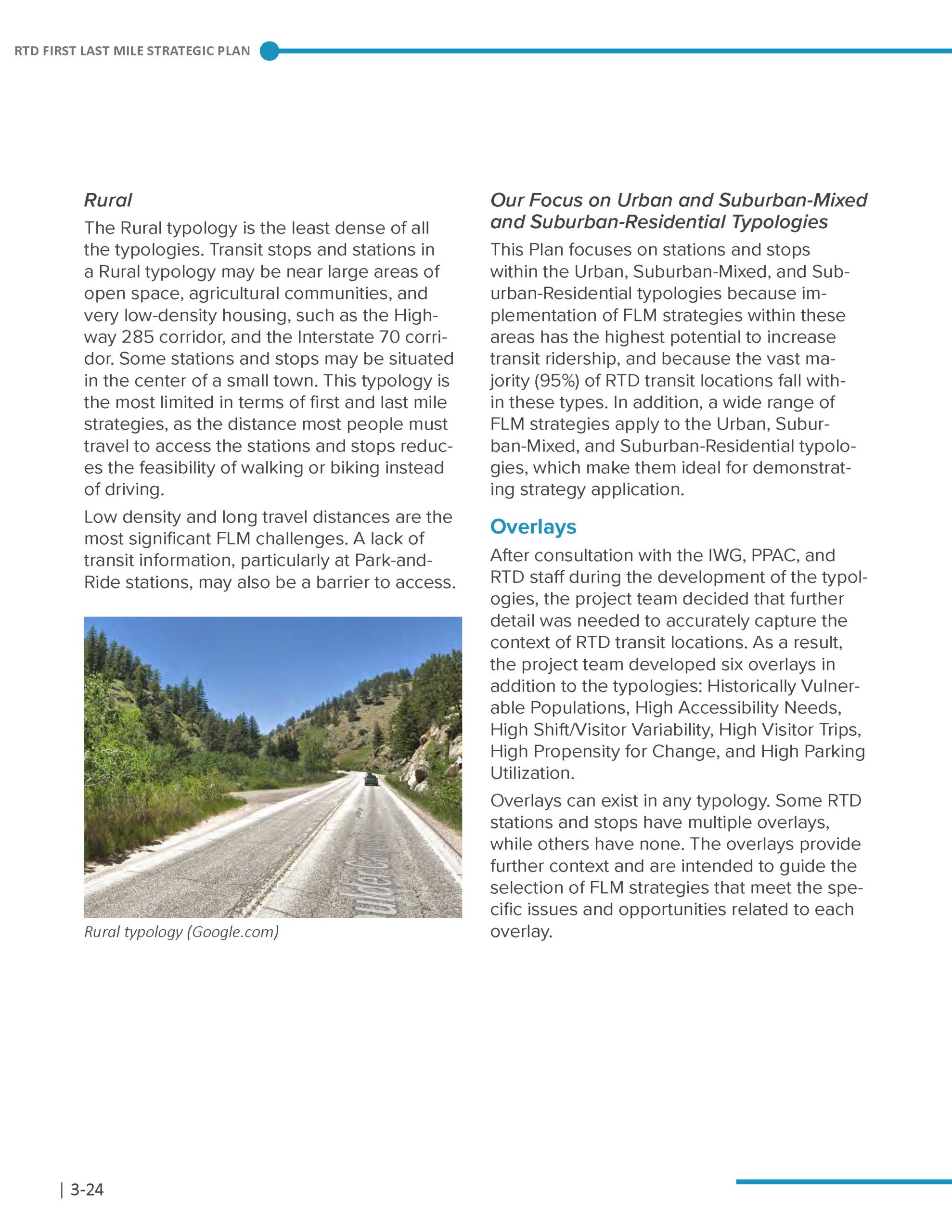
Results
The project team developed a methodology to put the first and last mile toolkit into action and identify the most suitable and practical strategies to improve station access. This methodology was applied to 15 representative stations across the district to showcase to local jurisdictions how they can perform their own analysis and generate recommendation for their stations.
UrbanTrans has been an amazing & extremely reliable resource for guidance and solutions in the challenging and complex world of TDM. Our non-profit organization has been able to count on UrbanTrans for a variety of projects including their great customer service and expertise in transportation. Working with UrbanTrans has made our work a complete success.
Tracy FosterBoulder Transportation Connections


